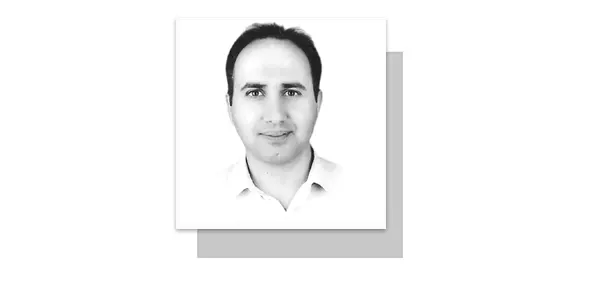MARCH 8 is designated as International Women’s Day each year to honour and commemorate the contributions made by women. International Women’s Day originated from the 1908 labour movement in New York, led by the Socialist Party of America, where women garment workers demanded better pay, shorter working hours and voting rights. In 1975, the UN declared this day to be International Women’s Day. “Invest in women: Accelerate progress” is the theme for International Women’s Day-2024.
The UN is focusing on the issue of gender inequality in the digital space, highlighting the gender gap in leadership positions and unpaid domestic labour. A UN report states that if this norm is not reversed, over 340 million women and girls will live in extreme poverty by 2030. UN Women also highlighted that women make up only 22% of artificial intelligence workers worldwide, with 44.2% of AI systems showing gender bias. Poverty continues despite economic goals to decrease it because infrastructure spending is prioritised over spending on health and education. According to a poverty survey, 75 million out of 245 million Pakistanis, or one in three people, live below the poverty line. Low productivity and earnings are perpetuated by lower per capita incomes because they make it harder for the poor to save and invest. Fast population expansion likewise drains the rise in real per capita income, making it unable to escape the cycle of underdevelopment. Being 49% of the population, women bear a disproportionate share of the burden of poverty, with the majority of them being malnourished and neglected.
In the past few years, it has been experienced that income earning opportunities are few and far between for the poor women of both rural and urban areas. Few of them have learnt vocational skills and often seek additional income by making and selling local handicrafts, but lack proper linkages to market these products. Employment opportunities are scarce and real earnings have declined in the last decade. Majority of our poor women also lack basic human, physical and productive assets and have limited or no access to essential social services. The severe economic pressure on families is also a constraint in improving their health and sending their children to school. Unless these women are not empowered through education and skill development, the country won’t be able to remove gender inequality.
In the World Bank Policy Research Report, it is unambiguously suggested that women empowerment is being progressively recognized as an important policy goal for improving not just the well-being of women themselves but also for its positive impact on the family. Due to recent concern and emphasis on removing gender inequality and improving women empowerment as a Sustainable Developmental Goal, many efforts have been initiated by the Government and other organizations in Pakistan. According to UNDP’s Human Development Report, Gender Equality Measure (GEM) for South Asia shows the lowest value (0.235) among all the regions of the world. Furthermore, as per Gender development Index (GDI), Pakistan has been noted the poorest (0.179) among South Asian Countries where the average index is 0.226 (MHHDC, 2005). According to UNDP report for 2021, the HDI for Pakistan is 0.551, which ranks Pakistan on 150th out of 189 countries.
Women are the largest untapped reservoir of talent in the world. How can we bring them into the mainstream, and empower the poor women of Pakistan in particular? This question is asked in different ways, sometimes focusing on making adjustments to existing systems, sometimes by considering whether to introduce particular programs or policies. Women’s empowerment is heavily dependent on many different variables that include geographical location, educational status, social status, and age. Policies on women’s empowerment exist at the national, provincial, and local levels in many sectors, including health, education, economic opportunities, gender-based violence, and political participation. However, there are significant gaps between policy advancements and actual practice at the community level. One key factor for the gap in implementation of laws and policies to address discrimination, economic disadvantages and violence against women at the community level is the largely patriarchal structure that governs the community and households in much of Pakistan. As such, women and girls have restricted mobility, access to education, access to health facilities, and lower decision-making power, and experience higher rates of violence. Gender is a socio-cultural variable affecting both genders and their status relative to each other. Gender equality refers to a stage in human development where individuals’ rights, responsibilities, and opportunities are not determined by their gender, allowing both genders to reach their full potential.
It should be remembered that, even with a 39% poverty rate, Pakistan’s social protection system has a narrow scope and poorly targeted safety net programmes. According to a recent assessment by the South Asian Research Foundation (SARF), these programmes serve between 10% and 15% of the population, have weak institutional frameworks, and have little capability for implementation, monitoring, and assessment. It will take a large investment to effectively reach impoverished women in order to overcome these obstacles. Adopting a national targeting strategy and implementing skill training, demand-based trades, and market research are important steps towards economic rehabilitation. For these women, this will mean better fundamental health and financial stability. We should concentrate on teaching impoverished women in Pakistan’s rural and urban areas contemporary skills, trades, and marketing possibilities. Along with enhancing the financial activities of impoverished women, this will also investigate markets for the skilled but vulnerable and enhance capacity building. Elevating women’s status is the most powerful growth instrument available. Allow them to have a positive impact on Pakistan’s future; when you help a woman reach her full potential, amazing things happen.
—The writer is PhD in Political Science and visiting faculty member at QAU Islamabad.
Email: zafarkhansafdar@yahoo.com
views expressed are writer’s own.










